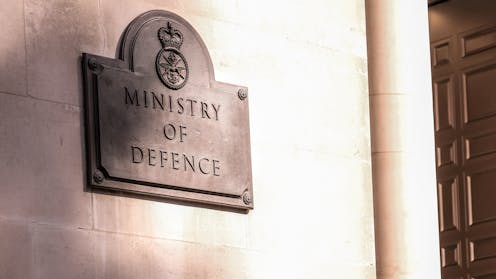Why did the government hide a data leak about Afghans working with British forces and why did the courts finally reveal it?
When thousands of Afghans were quietly flown to the UK under a secret relocation scheme, few knew it was triggered by an error. A defence official had accidentally leaked the personal data of nearly 19,000 Afghan nationals who had worked with British forces and were at risk of Taliban reprisals.
It has now also been revealed that the leaked list contained the identities of UK special forces and spies.
Even fewer knew that this misstep was being kept from the public by a rare and powerful legal device: a superinjunction. Now, after nearly two years of legal wrangling, the High Court has lifted that order, reopening the conversation about when secrecy in the justice system goes too far.
What is a superinjunction?
An injunction is a court order that stops someone from doing something (like publishing a story) or requires them to do something (like taking down an online post or handing back confidential documents).
A superinjunction goes one step further and does two things: it bans the publication of certain information (usually to protect privacy, safety or national security) and also bans anyone from revealing that the court order even exists.
In essence, it is a tool that provides legal invisibility: the story is hidden and so is the fact that it is being hidden. While an injunction works like a padlock on a filing cabinet, a superinjunction means you cannot even tell anyone the cabinet is even there.
Superinjunctions are exceptionally rare and controversial, precisely because they run counter to the principle of open justice. This is the idea that courts must operate in public, and that their decisions can be seen, scrutinised and questioned. Any derogation from open justice must be continuously justified and treated with considerable caution, especially where media freedom is curtailed.
Want more politics coverage from academic experts? Every week, we bring you informed analysis of developments in government and fact check the claims being made.
Sign up for our weekly politics newsletter, delivered every Friday.
Historically, superinjunctions have been used sparingly in cases involving blackmail, risks of violence against witnesses, the protection of children or to prevent tipping-off a subject before an order can be served (such as in fraud investigations), always with the aim of preventing harm or ensuring that justice is done.
The superinjunction committee (which was established in 2010 by Lord Neuberger to review growing concerns about such orders) made clear that the use of these legal tools must meet strict tests of necessity and proportionality. And, that they are only granted where serious harm (for example to life, safety or the administration of justice) is credibly at stake.
Why was a superinjunction granted in the Afghan data breach case?
In this case, the government argued that revealing the data leak could put lives in danger. The leaked spreadsheet contained names, contact details and, in some cases, family information of Afghan nationals who had applied to resettle in the UK. Many feared Taliban retaliation.
So, in September 2023, the Ministry of Defence asked the High Court for an injunction to stop media outlets from reporting on the leak. The judge did not just grant that request, he escalated it to a superinjunction, banning any mention of the case or the fact of the order.
It was described at the time as “unprecedented” in its scope. Journalists, even those who had already discovered the breach, were effectively gagged. The public had no idea any of it was happening.
Why did the court later decide to lift the secrecy?
After multiple hearings and appeals, High Court judge Mr Justice Chamberlain ruled on July 15 2025 that the superinjunction should be discharged once and for all. A government-commissioned review found that the leak may not have spread as widely as initially feared, and that Taliban reprisals were unlikely to be triggered solely by someone appearing on the leaked list.
The judge concluded that while the leak was deeply serious, continued secrecy was no longer necessary, and that the harm of suppressing public debate and scrutiny now outweighed the risks of disclosure. To put it plainly, the balance tipped.
Protection v cover-up
Superinjunctions are not inherently wrong. There are situations where short-term secrecy is essential, for instance for the purposes of shielding vulnerable parties like children or genuinely guarding national security.
But the Afghan case exemplifies the dangers of allowing secrecy to persist too long or too broadly. For nearly two years, the public was kept in the dark about a data breach involving tens of thousands of lives – including British citizens – and a government response that may ultimately cost the taxpayer “several billion pounds”.
In this context, secrecy risked becoming a form of institutional self-protection, shielding the Ministry of Defence and the government from political fallout, legal scrutiny and accountability, rather than safeguarding people from actual harm.
The principle of open justice is at the heart of democratic life. Superinjunctions, by their nature, run directly against that principle. There are times when secrecy might be seen as necessary, but it must always be tightly scoped and justified with evidence while serving the public interest; not convenience or image. By lifting this superinjunction, the courts affirmed that the British public has a right to know not only what went wrong, but that something went wrong at all.
Alexandros Antoniou does not work for, consult, own shares in or receive funding from any company or organisation that would benefit from this article, and has disclosed no relevant affiliations beyond their academic appointment.


